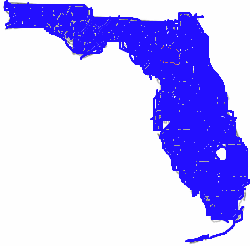The Florida Supreme Court on Tuesday began hearing a case centered on public records requests and the Jacksonville public safety pension system.
The dispute is between the Jacksonville Police and Fire Pension Fund and a resident who says he was charged exorbitant fees to gain access to public pension records – records which are supposed to be available to the public at reasonable cost.
Background on the case, from the Florida Times-Union:
The case began in 2009 when [Jacksonville resident Curtis] Lee, a frequent critic of the pension fund, was told he would have to pay $326 before he could review documents that were sitting on a table at the pension fund office.
Lee was then told he would have to pay $280 in advance so that a staff member could watch over him while he reviewed records for up to eight hours. Pension fund managers then wanted Lee to pay $27.66 an hour for another employee to make copies of Lee’s public record’s request.
Lee sued, arguing that the pension fund was excessively charging him in an attempt to discourage him from seeing documents that are subject to the state’s Government in the Sunshine Law. Circuit Judge James Daniel agreed that Lee had been overcharged but declined to award him attorney fees, saying that the pension fund didn’t knowingly violate public records laws.
An appeals court then sided with Lee, and ordered the pension fund to reimburse Lee for his legal fees. The fund appealed the case to the state Supreme Court.
Photo credit: “Bluefl”. Licensed under Public Domain via Wikimedia Commons – http://commons.wikimedia.org/wiki/File:Bluefl.png#mediaviewer/File:Bluefl.png



